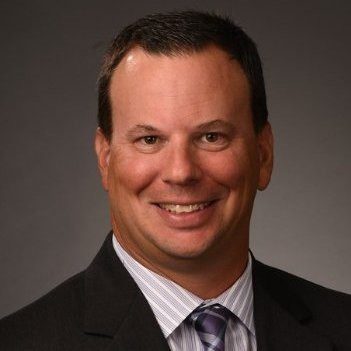
Shaun Poulton is looking out across a complex federal IT landscape.
“Modernization and technical debt are some of the most significant challenges that we’re seeing. There’s an ongoing need to bring in new tools and capabilities, deal with aging systems and legacy approaches to solving problems,” he said.
At the same time, the rise of AI is complicating the picture. For example, “being able to trust that data and the resulting decisions that are being made from the output is a challenge,” he said.
As chief technology officer at Edgewater Federal Solutions, Poulton is helping to move the needle on all those fronts.
“In the Department of Energy, for example, we work within about 20-plus different customer areas, bringing proven vendor-agnostic frameworks and approaches,” he said.
Edgewater isn’t a product company. “We bring a consultative approach: What challenges are our customers actually having? What is really happening when the rubber hits the road? And where is technology going to be helpful to solve their problems?” he said.
An agency might, for example, need an agile means to modernize legacy software or systems. “We bring that agile framework and methodology, giving customers a proper roadmap to migrate from legacy to new tool sets, whether that’s a lift-and-shift or a cloud-native development,” he said. “We help them to truly move in the right direction.”
A big differentiator for Edgewater lies in its approach to solving problems. Having grown recently from a small to a mid-sized position in the GovCon space, “we still take our small-business, boutique, consultative approach,” he said.
What does that mean in practical terms?
“It means you’re getting more dedicated service,” Poulton said. “We have corporate subject-matter experts across technologies, processes, and methodologies, and they engage with our customers, which enables customers to feel well-connected to Edgewater’s leadership and the team.”
That formula works: Edgewater Federal has grown 400% to 500% over the past five years, Poulton said.
In seeking to drive continued growth as the company moves beyond small-business contracts to full and open competition, Edgewater keeps a steady eye on the ever-changing technology landscape. “We are always looking to bring innovation and drive efficiencies,” he said, and the company has established a technology leadership council to ensure that happens.
In addition to there being room to grow in the Department of Energy, Edgewater is looking elsewhere for growth. “Federal civilian is still the focus, and we’re looking at some agencies like DHS as a target. In addition, we want to expand our work with our FBI customer and a few others,” he said.
Along those same lines, the company is looking for opportunities to expand into the defense sector as well. “The Department of Energy has a lot of civilian work, but there are also a lot of connections and ties back to the defense world,” he said. “We do a lot of cleared work…and we think that could be an interesting stepping stone for us into some potential defense work in the future.”
Even as he helps to chart that course, Poulton maintains an internal focus, helping the company chart its organizational path from small-business to mid-tier GovCon.
“We’ve always done a good job of really taking care of our employees,” he said. “Now we are looking at additional programs, additional talent: Adding to our growth team, adding some key resources to help position us for that growth while continuing to provide that high level of service.”
To that end, the company has lately added several industry leaders, “key folks who are helping to make sure that that growth engine is really tuned up and ready to go,” he said. “That’s a really big thing for us: Investing in the processes and the tools. It’s just a different ballgame when you’re competing and getting in front of opportunities where the acquisition cycle is measured in years versus in weeks or months.”
To succeed in the full-and-open world, “You got to have the right processes and the right plan,” he said. “Edgewater brought on an experienced minority investor, Blue Delta, about a year and a half ago to help us make the turn from small to large, and they’re providing us with great advisory services. They’re able to help with best practices and point us in the right direction. That’s been invaluable.”
A long-time player in the technology and GovCon space, Poulton said he’s pleased to be part of the effort to elevate government operations.
“I’m a process person. I like to solve problems,” he said.
His current role is all about “continuing to improve, to create efficiencies,” he said. “When I look at our customers, there are lots of problems to solve. I enjoy being able to unlock the capabilities or improve the processes, helping agencies to be good stewards of taxpayer dollars and to do things as efficiently and effectively as possible.”

